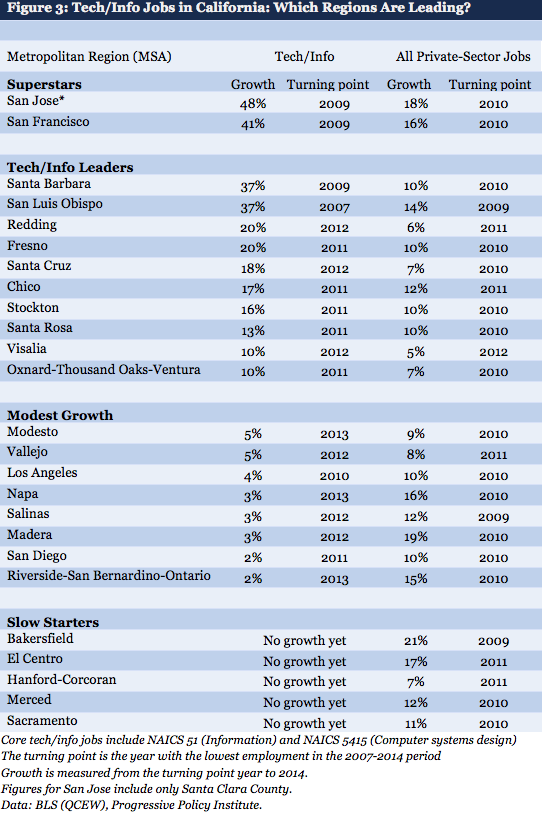Silicon Valley Metro Areas Aren’t the Only Ones Benefitting from California’s Tech Resurgence
Silicon Valley, California Mariusz S. Jurgielewicz / Shutterstock.com

Connecting state and local government leaders
Cities in coastal and Central Valley areas are witnessing significant private-sector job growth as well, according to a new Progressive Policy Institute brief.
California’s innovation-fueled economic growth hasn’t been limited to Silicon Valley since the state’s recovery from the Great Recession, emanating outward to several coastal and Central Valley metropolitan areas, according to a new Progressive Policy Institute brief.
PPI counts information and Internet services, media and content production, software developers, and tech infrastructure and manufacturing as part of the amorphous technology/information sector—comprising 900,000-plus workers in the state.
The sector accounted for 32.1 percent of the increase in California wages, PPI reports, and the state leads all others in private sector job creation with 1.5 million since 2009—more than Europe’s strongest economy, Germany.
Per the policy brief:
Previous work by PPI suggests that regions with vibrant tech/info sectors have performed better economically than other regions of the country, including stronger growth of non-tech/info jobs. And indeed, that’s what we find in California: From 2009 to 2014 private sector employment outside of the tech/info sector rose by 11% in California, compared to an average of 8% in the rest of the country.
While usual suspects San Francisco and San Jose led California’s 26 metro areas with tech/info sector employment bottoming out in 2009 before increasing nearly 50 percent, areas like Fresno saw jobs bottom out slightly later, in 2011, followed by 20 percent growth.
The full rundown shows how widespread tech/info sector growth has become in the Golden State:

Perhaps most striking is the fact the state capital Sacramento has yet to reap the benefits, though PPI speculates this may be due to state budget cuts that could soon be offset by the tech/info boom.
One cause for concern is California’s 8.8 percent marginal corporate tax rate on top of the federal government’s high 35 percent rate, PPI reports, which could lead startups to outsource jobs to the tax-friendly United Kingdom, which lowered its rate to 20 percent.
PPI’s full report can be found here.
Dave Nyczepir is News Editor at Government Executive’s Route Fifty.

NEXT STORY: 3 Ways WIOA Will Change How Workforce Boards Operate





